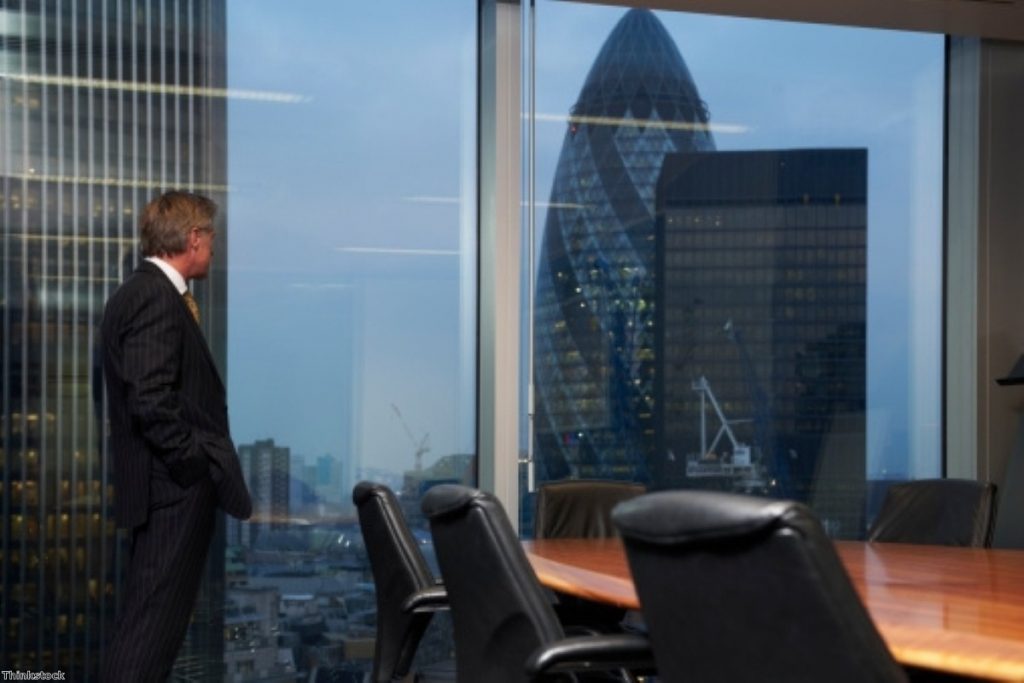‘It’s not fair’, politicians tell UK’s fat cats
By Ruth Mckee and Alex Stevenson Follow @alex__stevenson
Politicians have spoken out after it emerged the bosses of Britain's top firms have enjoyed a 50% pay rise in the last year, but have struggled to come up with solutions.
Data from Incomes Data Service (IDS) found that the average pay for a FTSE 100 director was now just short of £2.7 million. Chief executives' yearly take-home pay rose by 43% in the last 12 months.
As well as their healthy pay packets, directors of the top companies enjoyed a 23% hike in their bonus payments, which climbed by 23% from £737,000 in 2010 to £906,000 this year.


The astronomical payouts contrast with the problems faced by those outside the boardroom in Britain's stagnant economy, as unemployment continues to rise and inflation is set at a record 5.2%.
"This is not the something-for-something economy we believe in," Labour leader Ed Miliband said.
"People are not against those at the top getting higher rewards if those rewards are earned, if more wealth is created, if more jobs are created.
"But when people are struggling, when the middle is being squeezed, when people are seeing their living standards fall, it is not fair for those at the top to get runaway rewards not related to the wealth they have created. This is what we need to change about our economy."
His views were echoed by David Cameron, despite the fact the prime minister had earlier sought to put himself firmly on the side of City financial firms against a growing danger of "caucusing" in the European Union.
"This is a concerning report, particularly at a time when household budgets are very tight and people have difficult circumstances – the increase in food prices and fuel prices, six million public sector workers on a pay freeze," the prime minister said at a joint press conference with Australian PM Julia Gilliard in Australia.
"At the moment I think there is too much of a closed circle of people made available to be non-executives. By opening this up, by increasing the number of women in our boards – I think that would have a beneficial effect."
Steve Tatton, editor of the IDS report, said the pay gap between the boardroom and the shop floor was not showing any signs of closing.
Pay settlements outside the boardroom remain shaky with City workers' bonuses predicted to fall this year by 28% to £4.2 billion – which will be the lowest set of bonuses since the banking crisis began in 2008.
Unions said they were incensed by the figures. Len McCluskey, general secretary of Unite called the inflated pay packets "obscene".
"The government should strongly consider giving shareholders greater legal powers to question and curb these excessive remuneration packages," the union leader said.
"Institutional shareholders need to exercise much greater scrutiny and control of directors' pay and bonuses."
But Tom Gosling, a partner at accountancy firm PricewaterhouseCoopers, said that the dramatic uplift in senior salaries in 2010 was partly due to the recovering economy.
"Through 2010 the economy was coming out of recession, share prices rose nearly ten per cent over the year to finish at their highest year end position since 2007, and there was a general mood of optimism in the economy," he said.
"It is not surprising that bonus and share option pay-outs increased."
Firms will have to disclose the link between pay and performance over a five-year period, as well as demonstrate how the salaries of their senior executives are reflected in profits and pay of the wider workforce.
Mr Gosling added: "Companies should bear these future disclosures in mind as they make decisions this year, and make sure they have a good story to tell."












